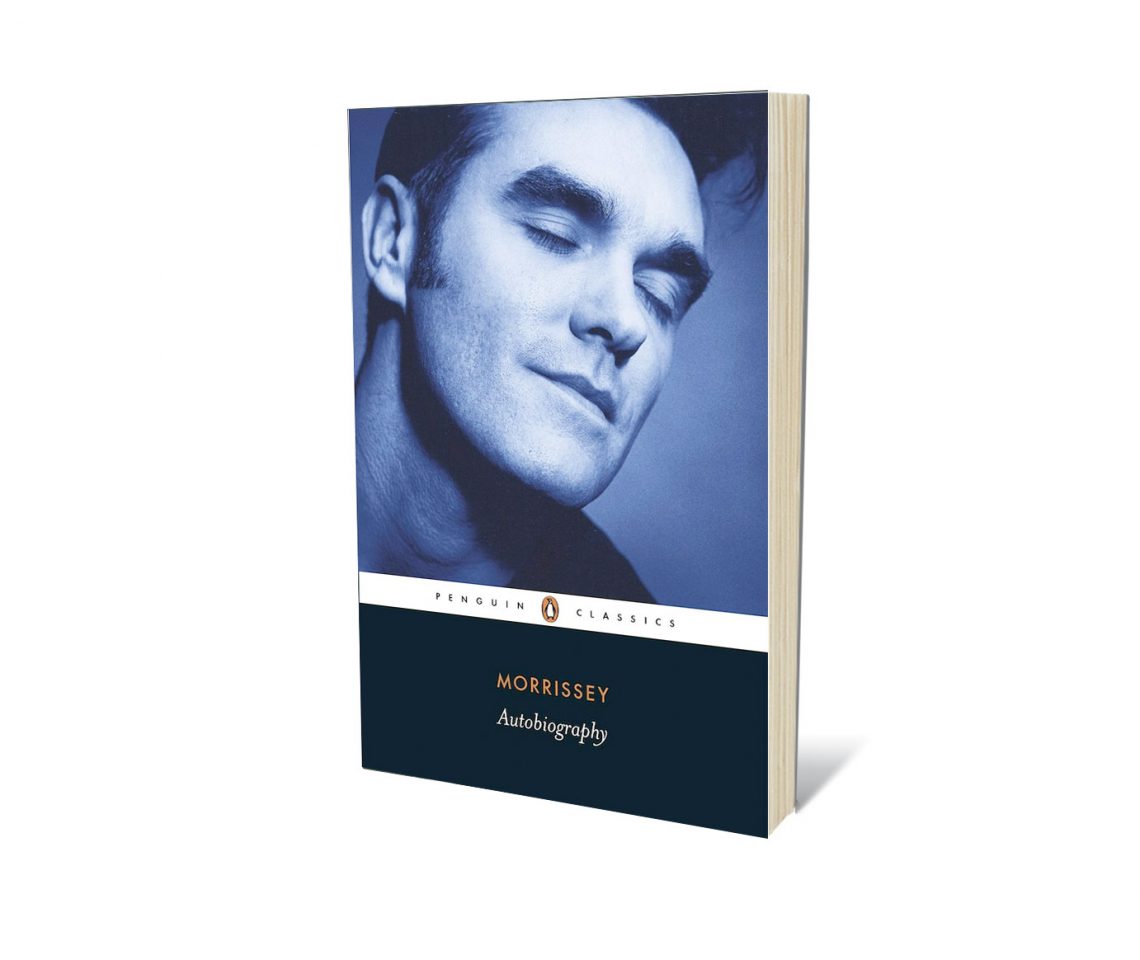Morrissey – Autobiografía: la televisión, la poesía, el cine y la cultura popular (Citas)
Morrissey, finalmente y después de años de espera y especulación, decidió publicar sus vivencias en un libro que, desde su lanzamiento y como es costumbre con el prodigio de Manchester, causó polémica al ser publicado por la editorial Penguin en su sección de clásicos donde se encuentran únicamente monstruos como Joyce y Dickens. Así es como este es el primer libro contemporáneo que Penguin Classics publica como un clásico instantáneo.
Más allá de sus obsesión con Shelagh Delaney, James Dean y una infinidad de celebridades, su odio hacia la monarquía inglesa, su repudio al Thatcherismo, la muerte de varios miembros de su familia y su amistad con James Maker y Linder Sterling, aquí un resumen en palabras de Morrissey sobre lo que disparó su genio y que más tarde, cristalizaría en arte con The Smiths.
EL ARTE Y LA CULTURA POPULAR
GEORGE BEST: Su primer acercamiento hacía el glamour y la fama
“Arbitrarily illiterate, football players remained in the stuckness of their own dull social units until George Best spoke and teased and joke and made sense. Best was clever and witty, and he had found a variety of ways to make his life glamorous”
“it is the physical and facial glamor of George Best that gains him so much love and hate, for everybody wants what he has”
LA TELEVISIÓN: Su primer amigo, un escape de la realidad, las soap operas británicas y Coronation Street.
“Television is the only place where we banish ourselves from the community of the living, and where the superficial provides more virtue than the actual. We watch in order to find ecstasy, for at last we can survive in someone else. Our conclusions are our own, yet the landscape is infinite”
Television is black and white, so therefore life itself is black and white.”
“The happy bubble of television shows me the earth and its fragile moments of fantasy, and I, with all the petulance of the pipe dream, am allowed to engage”
“hope remains only via television”
LOS ACTORES Y EL CINE BRITÁNICO: Un reflejo e identificación con la clase trabajadora en películas como Oliver Twist (1948), London Belongs Me (1948), The Blue Lamp (1950), I Believe In You (1952), The Strange One (1957), Sapphire (1959), Spare The Road (1961), The Painted Smile (1962), Term Of Trial (1962), Two Left Feet (1963), Up The Down Staircase (1967), To Sir,With love (1967)
“he lives alone, unexcited, disinterested, world weary and ungiving, yet it is this dry-as dust approach that makes him fascinating” (Richard Bradford)
“No rampantly challenging mind could overlook the lost cultures as mapped out in British film, wherein the restricted horizons of the expendable working class thrillingly show us how British life go to where it is now-in your private modern cuckoo-land”
“In my favorite films of the 1940s, 1950s and 1960s, the working class are usually portrayed as children enacting pointless working-class crimes”
“In all working class films of the 1960s, life´s winner is the boy with the gleam in the eye – roughs of self recognition and blessed profiles. They will not accept conservative limits, and their selfish motivations or their crude nerve are both justified by the fact that they give nothing but look everything”
LA POESÍA: Hillaire Belloc, Dorothy Parker, Stevie Smith, W.H. Auden, John Betjeman, Robert Herrick, A. E. Housman, Patrick MacGill y OSCAR WILDE, su mayor influencia.
“I cried for poetic language and I cried out to find those who were unafraid, those free agents, unbigoted and unshackled. I didn´t want to live unseen, camouflaged within the crowd”
“there is so much wisdom in the unfolding words”
“blend noise and words and save the world”
“Oscar Wilde exploded with original wisdom, advocating freedom for heart and soul, and for all – regardless of how the soul swirled. He laughed at the squeezers and the benders and those born only to tell others what to do”
“I have a sudden urge to write something down, but this time they are words that must take a lead. Unless I can combine poetry with recorded noise, have I any right to be?”
“the published poetry makes the personal torture just barely acceptable”
Citas obtenidas de: Morrissey. Autobiography. London: Penguin Classics, 2013
